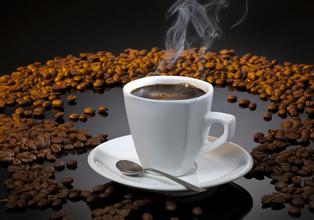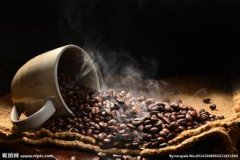El Salvador Pacamara boutique coffee beans with balanced taste simple treatment method of grinding degree and baking degree

Pacamara is full of flavor, rich and changeable is rare in other varieties, for example, in addition to fruit and rich taste, but also with apricot, vanilla plants, tropical fruits, chocolate, sweet spices and other changes. But there is no better. Mature Pakamara coffee trees will show a gradual decline in yield or occasional unstable flavor, and have high requirements for soil and water and microclimate. When planted in inappropriate locations, they will be slightly less clean and have a bad wood smell. The owner of Santa Marie, the winner of the Excellence Cup in Honduras, has analyzed to me that bean bakers who like Pakamara should choose their products and estates carefully to avoid stepping on the mines of Pacamara the old bear.
Star varieties are difficult to serve.
When it comes to the Pakamara species in Saudi Arabia, we have to introduce Pacamara Manor first. In Ecuador in 1984, the fascists could buy the Pakamara Coffee Garden as the new owner. The Falesco family has been growing coffee in the Apaneca mountains since their grandparents for more than a hundred years. Urgado wanted to take a different path from his grandparents and decided to plant a new species, Pacamara, which had just been developed from the agricultural technology unit of Saudi Arabia. He found that this new species had a large and beautiful appearance, and could show a good flavor and aroma under excellent local conditions. He found new hope and found the rising star in his mind, but the first harvest turned out to be the beginning of hard work.
El Salvador, located in the northwest of Central America and bordered by the Pacific Ocean to the south, is one of the birthplaces of the ancient Mayan civilization. The nearby volcanoes, plateaus, lakes and bathing beaches along the Pacific coast are all very pleasant. But El Salvador is most famous for its unique, mild-flavored coffee.
El Salvador is one of the small countries in Central America with a very dense population. People here love coffee. The coffee in El Salvador tastes well balanced. Salvadoran coffee exports account for 40% of the country's exports. The best quality coffee is exported from January to March each year, and 35% of the extra hard beans are exported to Germany. In the early 1990s, due to the impact of war, the national economy of El Salvador was greatly damaged, even destroyed. As a result, the output of coffee decreased from 3.5 million bags in the early 1970s to 2.5 million bags in 1990-1991.
In El Salvador, the coffee beans rich in the Kuskabapa region are the best, slightly lighter, fragrant, pure and slightly sour. Like Guatemala and Costa Rica, coffee in El Salvador is graded according to altitude, and the higher the altitude, the better the coffee. The best brand is Pip, whose quality has been recognized by the American Organic Certification Society. Another rare coffee is Parkmara, a hybrid of Pacas coffee and Marago Rippi coffee, best produced in western El Salvador, adjacent to Santa Ana, which is close to the border with Guatemala. Parkmara coffee is full of particles.
Coffee producing areas in El Salvador:
Like Guatemala and Costa Rica, coffee in El Salvador is graded according to altitude, and the higher the altitude, the better the coffee. The best brand is Pipil, which is what the Aztec-Mayan (Aztec-Mayan) called coffee, which has been recognized by the American Organic Certification Society (OrganicCertifiedlnstituteofAmerica). Another rare coffee is Pacamara, a hybrid of Pacas and Maragogype. The best place to produce the coffee is in western El Salvador, adjacent to SantaAna, which is close to the border with Guatemala. Parkmara coffee is full of grains, but not very fragrant.
Features of Salvadoran coffee:
Coffee from El Salvador is a specialty of Central America, where it is light, fragrant, pure and slightly sour.
Flavor: balanced taste and good texture
Recommended baking method: moderate to deep, with a variety of uses
Bourbon is already the largest variety in the country, and the national planting rate is as high as 60%. The fruit of bourbon has four colors, red, yellow, orange and a small amount of pink bourbon. Pacamara, which belongs to large granule, is a new variety cultivated by Pacas and elephant bean. Pacamara originated in sa, but its output is much less than that of Bourbon. Sa Coffee Committee uses the marketing slogan of smiling drinking, plus smiling logo to promote Sabuo bourbon beans, and to strengthen the impression of strong varieties of beans in the national competition with Pacamara, who is constantly in the limelight in the Excellence Cup. The two major varieties compete for the title in the national competition, and each year the top 10 finals of Zhuoyou Cup, Bourbon vs Pacamara, which breed is the champion? The constant talk has also caused neighboring countries to follow the trend of scrambling to grow Pakamara.
Since 2006, in the process of searching for and marking beans, I have tested the Pacamara species of 30 high-quality estates with the international judges of Osher. In fact, there is no shortage of superstars in the boutique coffee circle, including Santa Marie, champion of Honduras in 2006, Montenegro Manor, runner-up in 2007, Incht, champion of Guatemala in 2008, and Pakamara Manor, runner-up in Saudi Arabia. Including, of course, the 2012 Samaritan champion, Blumas Manor.
Important Notice :
前街咖啡 FrontStreet Coffee has moved to new addredd:
FrontStreet Coffee Address: 315,Donghua East Road,GuangZhou
Tel:020 38364473
- Prev

Sour, lively and tricky El Salvador Pacamara boutique coffee bean cultivation situation, geographical location and climate
Won two ○○ seven Guatemala and Honduras [COE] double championships, but also arranged to host the top three awards in El Salvador. The name of Pacamara is very good. It is a compound word of Pacas [Pacas] and elephant bean [Maragogepe]. Pacamara is an excellent variety produced by the Salvadoran Coffee Research Institute from 1957 to 1958. It did not shine until recent years and became a boutique.
- Next

A brief introduction to the description of flavor and aroma characteristics of Brazilian Hilado coffee beans with balanced taste
Since then, with regard to the assessment of the location at the Serrado Coffee Institute, a certificate has been issued in accordance with the provisions of SCAA Kaseru. In addition, in 2005, taking into account the certificate of origin and the priority of coffee in the designated region Serrado, Kaseru's Serrado Coffee Origin quality Certification (name Serrado Certification) has issued the vast majority of Brazilian coffee, with a balanced sour, sweet and bitter taste.
Related
- Detailed explanation of Jadeite planting Land in Panamanian Jadeite Manor introduction to the grading system of Jadeite competitive bidding, Red bid, Green bid and Rose Summer
- Story of Coffee planting in Brenka region of Costa Rica Stonehenge Manor anaerobic heavy honey treatment of flavor mouth
- What's on the barrel of Blue Mountain Coffee beans?
- Can American coffee also pull flowers? How to use hot American style to pull out a good-looking pattern?
- Can you make a cold extract with coffee beans? What is the right proportion for cold-extracted coffee formula?
- Indonesian PWN Gold Mandrine Coffee Origin Features Flavor How to Chong? Mandolin coffee is American.
- A brief introduction to the flavor characteristics of Brazilian yellow bourbon coffee beans
- What is the effect of different water quality on the flavor of cold-extracted coffee? What kind of water is best for brewing coffee?
- Why do you think of Rose Summer whenever you mention Panamanian coffee?
- Introduction to the characteristics of authentic blue mountain coffee bean producing areas? What is the CIB Coffee Authority in Jamaica?

